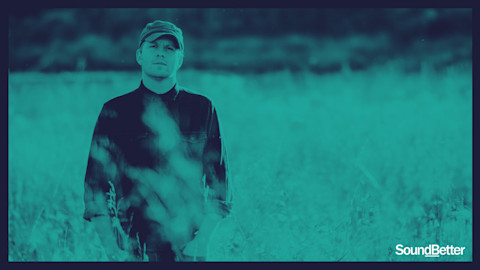The composer says the emotional connection with the audience is like nothing else.
Score composers have a huge role in amplifying the intensity and emotion of our most epic viewing experiences, but rarely do they get to plug into an actual amplifier and rock an arena while flames explode behind their heads. Enter Ramin Djawadi, who has done exactly that during his Game of Thrones Live Concert Experience, which deploys a huge orchestra, massive screens, and wild effects to bring to life the music he created for the beloved series' eight seasons.
The tour's latest cycle kicks off September 6 in Toronto, and will visit amphitheaters this time. A smaller stage might seem like a hindrance for the outsized production, but the open air brings a whole new set of possibilities for a show that involves dragons. Djawadi's concerts are all about finding creative ways to thrill, and he’s doing it with what is essentially classical music. We caught up with him to find what kinds of opportunities these live performances open up for both him and the audience.
Game Of Thrones Live Concert Experience Photo by Ralph Larmann
Spotify for Artists: Game of Thrones has super-fervent fans. Surely they'd line up around the block to hear this music in a concert hall. Why not showcase the score in a more traditional setting?
Ramin Djawadi: When we were planning the first tour, I just felt the urge to try something different because of the nature of the show. There's dragons in the series—let's shoot pyro! There's ice when we're north of the wall—let's simulate snow! Let's make this a more immersive experience, push it a little bit more into a rock-concert direction and open it up to all kinds of fans and concertgoers. That was the idea, to make it more fun. But there's something to be said for doing a traditional orchestral concert of this music, so at some point I'll probably do that as well. Again, it comes back to trying different things. Arenas, amphitheaters, concert halls... all of them offer unique experiences.
What was your wildest idea that became a reality?
One of my favorite moments is when we pull the violinist up into the air and she becomes the weirwood tree. The funny thing was, I had asked her, "Are you afraid of heights?" and she said, "Yes... why?" And I didn't even think about the fact that the way you stand affects how you play. But she agreed [to it] and there she was, free-floating, soloing in the air. My creativity went wild. I was just playing with the images and, really, all that held me back was budget and the limitations of the arena. It was fun to throw it all out there and see what we could actually make possible.
Why was it important to you that your work be experienced live?
I was in bands before I became a film composer, and there's something special about playing versus recording. Live, there's that immediate connection to an audience. I missed that when I started scoring. And then everything aligned on this show. The idea of doing a concert started with the showrunners. That idea turned into a tour. Then: "Let's bring this to Europe." Now we're doing it under an open sky. To have a scoring career and be able to play live... it's incredible.
What do fans get out of a real-life event that they don't get from watching the show?
Seeing musicians perform the score makes a huge difference. I experience this with filmmakers every time I do a project, where we start with these synth demo mockups, which I play to them over the course of several months as I write the score. But when we get to the physical scoring stage and they see the pieces played by real musicians, it becomes so much more emotional and expressive. The same happens at a live concert. In our case, we show footage, so you get to see your favorite scenes accompanied by musicians rather than just hearing the recording. It really puts the emotion in the foreground. That's the power of playing live. It's unbelievable.
How did you approach storytelling for a two-and-a-half-hour concert experience?
It's such a big world, so we try to take a step back and see if we're capturing that. It's not only keeping the balance of the stories, themes, and characters—the ups and downs are important too, so we go from big epic action pieces to somber solo moments. There's always something interesting happening. It's important to us that die-hard fans get all their highlights, while people who've never seen the show can come out, enjoy the concert, and get a perfect crash course.
How important is world-building in creating art and culture today? I.e., going beyond the original medium of a thing, or offering fans something as immersive as this.
It's a great thing. If it's a show or movie where the emotions carry on even after the screen is turned off or you leave the theater, people want to relive that feeling. And the access is definitely a lot quicker. If you watch a show you can immediately go online and track down the score. It's cool to see the music take on a life of its own and I would definitely encourage other composers to do concerts in whatever stage or setting feels right for the project. The interest is there.
Do you have any advice for bands or artists who don't have a multimillion-dollar budget but still want to step up their live game?
There are definitely ways of doing it that don't involve a huge budget. When I lived in Boston, I was in a band that did all kinds of things on stage to mix it up—I remember one time we covered all our instruments and amps in white fur. So I guess the key is to figure out what sets you apart from other artists, and stay true to what your music is and what your show is, and just get creative.
—Chris Martins
Popular Stories
video
How Julia Wolf Made It




